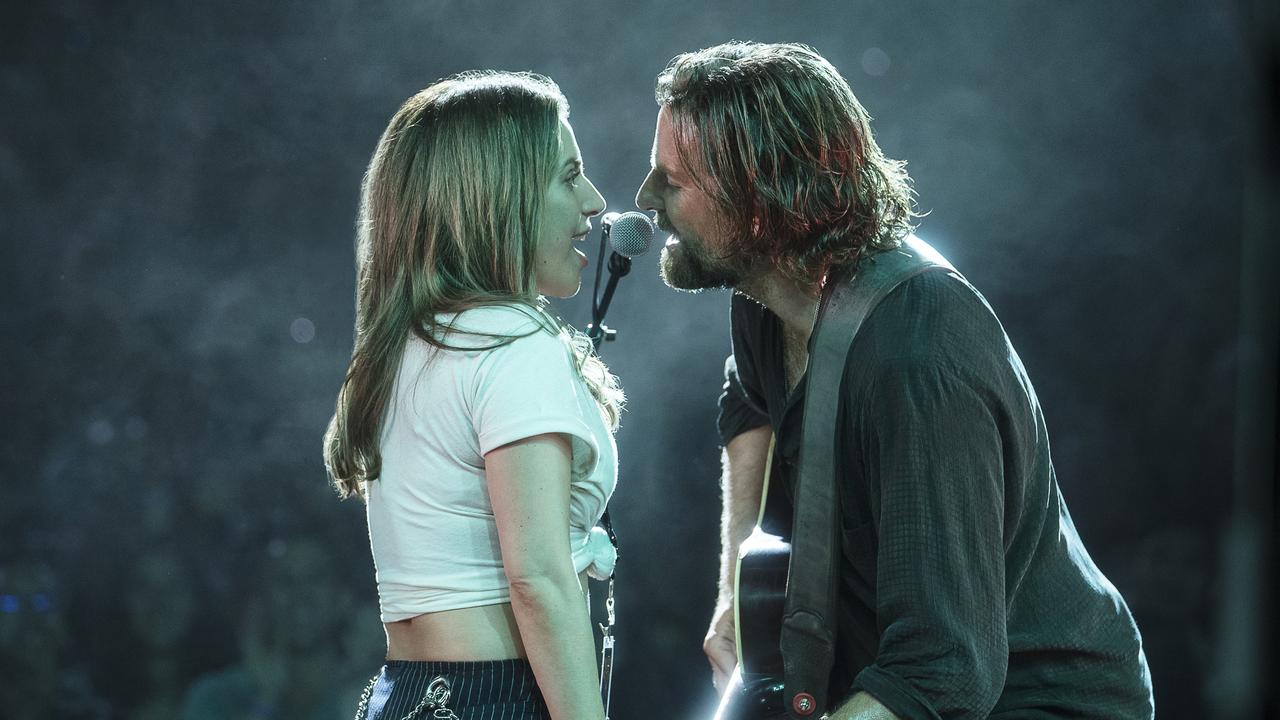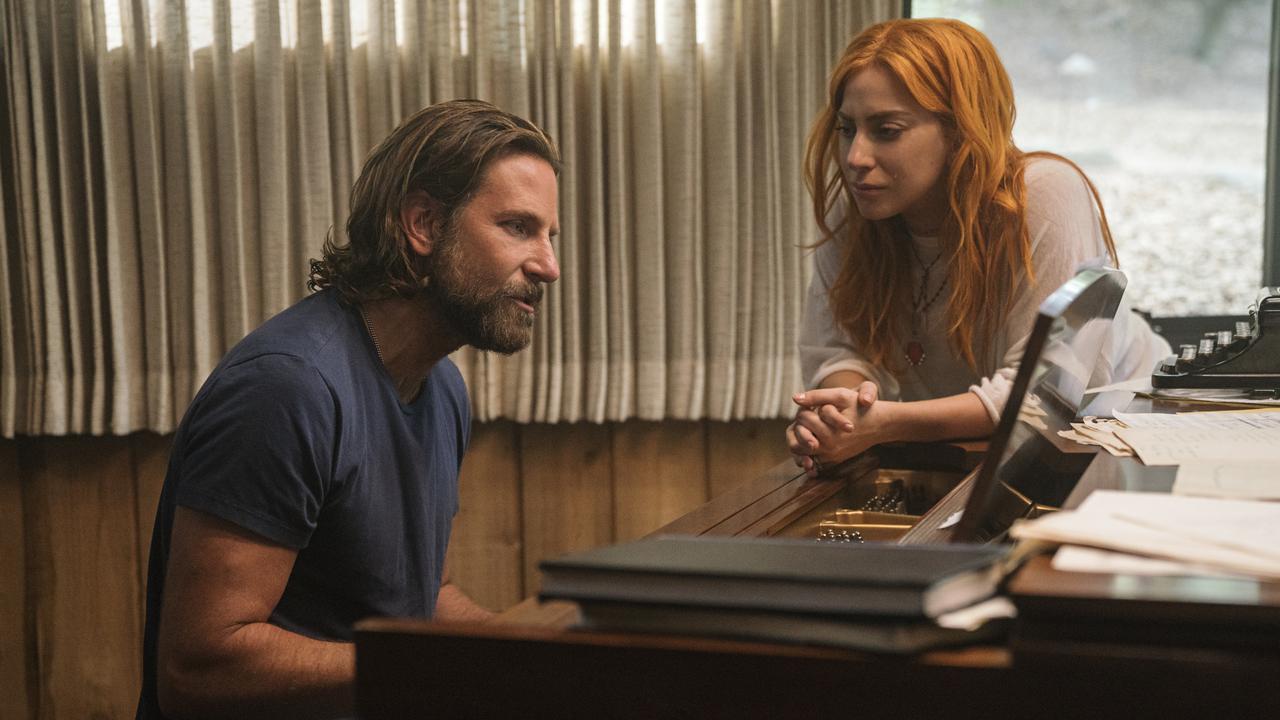Why A Star Is Born isn’t a perfect movie
IF YOU believed the hype, this would be the greatest movie of 2018. It’s not. But it does come pretty close.
IS THERE a movie that is more hyped up this year than A Star Is Born?
The third remake of a classic Hollywood flick, the Bradley Cooper and Lady Gaga film is an impressive spectacle that hits most of the emotional highs and lows audiences want from a movie that promises to take you on a melodramatic journey.
Not melodramatic in a bad way, melodramatic in that everything is heightened — the triumphs are soaring, the tragedies are crushing. Musicals are not subtle beasts.
Is it perfect, the most amazing movie you’ll see this year? No, but it is pretty great.

Bradley Cooper plays Jackson Maine, a country-rock star who still commands adulation but whose star is on the wane after years of battling drug and alcohol addiction, as well as the hearing condition tinnitus.
Coming off a roaring gig, he goes to a bar where he sees Ally (Lady Gaga) performing a soulful rendition of Edith Piaf’s La Vie En Rose. Ally is an aspiring singer who, despite her obvious talent, has been rejected by countless labels because she doesn’t have the right “look”, especially her nose, apparently.
Jack is immediately enchanted and while she’s initially hesitant, they bond over an evening — she singing her songs for him in a supermarket carpark, him magnetised by her presence. By the next night, she’s on stage at his next concert, belting out the song she sang for him in the carpark, now fully arranged.
It’s A Star Is Born’s most exultant moment. The sequence starts with Ally and her friend Ramon (Anthony Ramos) ditching their service jobs, being chauffeured to a private plane and then escorted through crowds, snaking along the corridors backstage and eventually in front of that teeming crowd.
It’s an electric experience, with Cooper borrowing filming and editing techniques from concert films, filling the frame with an undeniable energy. When Ally hits those first notes, you are completely with her. Her joy is your joy — that emotional transference from screen to spectator is seamless.

Their chemistry is palpable — Cooper and Gaga are clearly on the same wavelength and they’re able to have you invest in Ally and Jack’s relationship immediately.
That’s also the moment Ally is “discovered” and, before long, she’s signed to a producer and she’s performing pop songs to big audiences, complete with a flashy makeover, back-up dancers and neon light staging.
The first hour of the 2 hours 15 minutes A Star Is Born is transcendent; it’s utterly amazing, like a drug taking you on the most marvellous high.
The back half of the movie, much a like drug comedown, is very different. It loses its dynamism as it starts to drag. The emotional investment Cooper so expertly built up in its first hour slips.
Gaga is a revelation in the first half, whose wonderfully understated performance defies what you would expect from a forceful performer who has always been very confident. But that performance feels flatter as the film goes on.
While, in theory, that would mirror Ally’s emotional through-line, in actuality, Gaga isn’t developed enough as an actor to carry that enormous burden without sapping energy from the overall film. But that may also lay with Cooper, who directed her performance, or the extended run time.

Anyone who has seen any of the three previous versions, starring Janet Gaynor (1937), Judy Garland (1954) and Barbra Streisand (1976), will no doubt remember how it ends. But even for those who haven’t, it’s a familiar trajectory.
The idea is that there are only so many stars — one must move aside for another. So the story isn’t just about Ally’s journey to the top of the charts and acclaim, it’s also about Jack’s descent and increasing irrelevance.
Telling the downfall story requires more finesse than A Star Is Born is able to manage — the Garland version does this very well and it’s inevitable that this version will always be compared to the ones before it.
Cooper’s performance as the sad and struggling Jack is brilliantly calibrated, and consistent throughout — he even nailed the physicality of it, from that leathered, fake-tanned face to the lower octave voice and the constant, sweaty sheen of an alcoholic.
As a director, Cooper is exacting and meticulous with every detail — it’s a real achievement for a first-timer.
Sam Elliot as Jack’s older half-brother and manager brings another level of humanity to the film while Dave Chappelle is always welcome in a dramatic role.

The Garland version was able to tap into the dehumanising side of the Hollywood studio system and the trappings of fame, but Cooper’s A Star Is Born is more ambivalent about the music business.
Jack is disappointed at Ally for her transformation into a studio pop star with a manufactured image using her voice to sing about butts, losing what he sees as her authenticity. And because the film is so strongly behind Jack’s voice and perspective, it discredits the legitimacy of Ally’s star power as she becomes more famous.
But that judgment doesn’t gel with the prominence of Gaga’s poppier tracks on the soundtrack or the fact that many people like those songs better — it’s an uneasy relationship between the film’s sentiments and the commercial reality or the tastes of its audience.
This movie seems more interested in his story, the one of the fading star, than it is in hers, a reversal of the Streisand and Garland versions. His plunge, the alcoholism, is more convincing and nuanced than her meteoric rise.
While imperfect, A Star Is Born is a satisfying and emotionally evocative epic. If only it had managed to maintain the intoxicating allure of its first hour.
Rating: ★★★★
A Star Is Born is in cinemas from today.
Share your movies and TV obsessions with @wenleima on Twitter.




